双语:办公室听歌会让脑部语言负担过重(组图)
Marissa Yu works in a busy office, surrounded by 120 co-workers in a mostly open space. Yet when she has a question, needs an update or tries to reach some of her colleagues, she might as well talk to the wall。
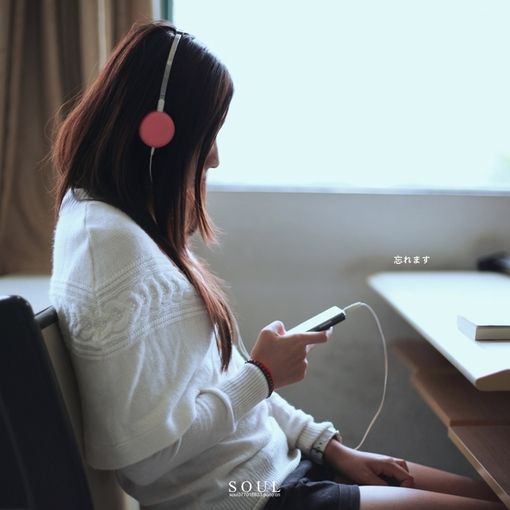 双语:办公室听歌会让脑部语言负担过重(组图)
双语:办公室听歌会让脑部语言负担过重(组图)玛丽莎•余(Marissa Yu)是休斯敦建筑工程公司PageSoutherlandPage的室内装潢主管,她在一个嘈杂的办公室里办公,近乎全开放式的办公环境中有120个同事环绕在她的周围。然而,当她想问个事、了解点情况或叫某个人时,却屡屡碰壁。
'You call their name one, two, three, four times, and they're not responding,' says Ms. Yu, director of interiors in Houston for PageSoutherlandPage, an architecture and engineering firm. 'You dial their extension and they're not picking up. Pretty soon you're throwing rubber bands across the wall.'
Michael Stravato for Wall Street Journal休斯敦建筑工程公司PageSoutherlandPage的办公室内,有四分之三的员工戴着耳机工作。玛丽莎说,“你叫他们的名字三四遍,却得不到一点反应。你打分机过去,他们不接,最后你只好冲他们扔橡皮筋。”
The culprit: ear buds playing music and noise-canceling headphones. Roughly three-quarters of Ms. Yu's co-workers wear them, and they're increasingly becoming de rigueur ear-wear in offices throughout the country. Many people argue that headphones are good at blocking distractions. And while a few employers ban their use, most tolerate it as a way for employees to regain some privacy in an open-plan office。
造成这种情况的罪魁祸首是:员工在用耳机听音乐,或戴上降噪耳机免受干扰。玛丽莎约有四分之三的同事戴着耳机工作,耳机也正成为美国各地办公场所的一样必备工具。许多人认为,戴耳机有助于减少外界干扰。虽然有些公司禁止员工在工作时戴耳机,但大多数公司还是默认了这种行为,以便让员工在开放式的办公环境中重新获得一些私人空间。
Research offers little support for the idea that listening to music improves concentration, says Robert Desimone, director of the McGovern Institute for Brain Research at MIT. In one of several small Taiwanese studies, listening to music with lyrics was linked to lower scores on tests of concentration in a study of 102 college students, published online earlier this year by the journal Work. In separate research, listening to hip-hop music was linked to a significant reduction in reading-test scores, based on a study of 133 adults published in 2010 in the Journal of the Scholarship of Teaching and Learning。
麻省理工学院(MIT)麦戈文脑科学研究所(McGovern Institute for Brain Research)所长罗伯特•德西蒙(Robert Desimone)表示,几乎没什么研究结果可以证明,听音乐有助于提高注意力。台湾做过几次小研究,其中对102名在校大学生的一次研究发现,听歌曲反而会降低他们注意力测试的成绩,该报告于2012年初发表在电子期刊《Work》上。另一项对133名成年人的研究显示,边听嘻哈音乐边做阅读测验会大大降低考试成绩,该报告于2010年发表在《教育学学者杂志》(Journal of the Scholarship of Teaching and Learning)上。
A third study of 89 students ages 19 to 28, led by researchers at Fu Jen Catholic University in Taiwan, found that workers who either loved or hated music being played where they were working scored lowest on tests of attention, compared with workers who didn't have strong feelings about the music or who worked in rooms without music. People naturally pay more attention to music they strongly like or dislike, hurting their ability to focus, the study says。
台湾的天主教辅仁大学(Fu Jen Catholic University)对89名19到28岁的学生做过一项研究,发现一边干活儿一边听自己喜欢或厌恶的音乐会导致注意力测试成绩排名最末,还不如听一些自己无所谓的音乐,或根本不听音乐。人们会很自然地把更多注意力放在自己喜欢或不喜欢的音乐上,因此无法专心做事。
In the office, listening to music with lyrics while trying to read or write can distract employees by overtaxing verbal-processing regions of the brain, neuroscientists say。
神经学家表示,在办公室一边听歌曲一边阅读或写作会让脑部的语言处理区负担过重,导致分心。
The prefrontal cortex, the brain's control center, must work harder to force itself not to process any strong verbal stimuli, such as catchy lyrics, that compete with the work you're attempting, Dr. Desimone says. The more cognitive work required to screen out unwanted input, the fewer cognitive resources remain for the task at hand. And the longer you try to concentrate amid competing distractions, the worse your performance is likely to be. 'Attention takes mental effort, and we can get mentally tired,' he says。
德西蒙博士说,前额皮质是脑部的控制中心,一个人在从事工作时,如果前额皮质受到语言类刺激,如好听的歌曲等,就很难控制自己的注意力不出现下降。脑部要动用更多的认知能力来排除不需要的信息,用于手头工作的脑部认知资源就会减少。脑部努力控制注意力不分散的时间越长,你的工作效果就可能越差。德西蒙说,“集中注意力需要花费心思,因此容易出现精神上的疲劳。”
Individuals respond differently to music, scientists say. For some, a familiar piece of music without lyrics can serve as a sound-blocker, helping screen out a colleague's loud voice. 科学家说,每个人对音乐的反应不同。对有些人来说,一曲熟悉而没有歌词的音乐能起到声音屏障的作用,把周围同事嘈杂的声音过滤掉。
Using noise-reducing headphones can be an even stronger aid to concentration. Headphones can screen out as much as three-fourths of office noise, says Steven Orfield, president of Orfield Laboratories Inc., an architectural design, research and testing company in Minneapolis. But when you take them off, 'for a couple of minutes, everything is going to sound way too loud for you' while your ears adjust, Mr. Orfield says. 'You may be speaking louder' to others。
降噪耳机对避免分散注意力具有更强的作用。明尼苏达州明尼阿波利斯市(Minneapolis)建筑设计、研究及测试公司Orfield Laboratories Inc。的总裁史蒂芬•奥菲尔德(Steven Orfield)说,降噪耳机能过滤办公环境中多达四分之三的噪音。然而,一旦取下耳机,奥菲尔德说,耳朵有一个适应的过程,“在头几分钟时间里,你会觉得周围实在是太闹了。你对别人说话的声音可能也会很大。”
Noise-canceling headphones, which were developed by Bose Corp. for use by airline pilots more than 20 years ago, are often marketed to air travelers; they work especially well on planes because they help cancel the low-frequency rumble of jet engines. In an office, they may help quiet the higher-frequency sounds of speech and other ordinary activity, so 'the user enjoys a controllable, comfortable level of loudness,' says David Reynolds, a facility management consultant in Jackson, Miss. This reduces fatigue for some people, he says。
降噪耳机是20多年前伯斯公司(Bose Corp。)为飞行员研制开发的,客户群通常定位为飞机乘客。这种耳机在飞机上尤为管用,因为它有助于减少耳朵听到的飞机发动机的低频噪音。密西西比州杰克逊市(Jackson)设施管理顾问戴维•雷诺兹(David Reynolds)说,在办公室,降噪耳机能在一定程度上隔绝人们说话或从事其他日常活动所带来的高频噪音,“让使用者能把周围声音的分贝控制在一个舒适水平”。
But headphones or ear buds can cause resentment among co-workers. Their use was cited as a major office-etiquette problem in a 2010 survey of 1,400 chief information officers by Robert Half Technology。
然而,头戴或入耳式耳机有可能给同事之间带来摩擦。2010年Robert Half Technology公司对1,400位各企业的首席信息长做了一项调查,发现戴耳机工作是一个主要的职场问题。
Micki Washington, 33, a project manager at PageSoutherlandPage, says she needs music to work but tunes in to instrumentals or Brazilian jazz, with lyrics in a language she can't understand. (Music with English lyrics can be so distracting that 'I'll have a tendency to sing along.') She plays louder, faster music in the morning to help her wake up, and softer, classical tunes when she needs to concentrate on a proposal。
33岁的米琪•华盛顿(Micki Washington)是PageSoutherlandPage公司的项目经理,她说自己需要在工作时听音乐,喜欢器乐和听不懂歌词的巴西爵士。(带歌词的英文歌曲很容易让人分心,因为她“不由自主就会跟着曲子一起唱”。)每天早上,她会播放一些快节奏的音乐,把音量调高,作为唤醒自己的一种方式。当她集中精力撰写报告时,会听一些轻柔的古典音乐。
'That's how I operate. I have to have some kind of background sound,' she says。
米琪说,“这是我的工作方式,需要有一点背景音乐。”
Employees at PageSoutherlandPage are free to do 'whatever aids productivity,' says Kurt Neubek, associate principal. While the company's open-office plan aids collaboration, 'everybody needs heads-down time, and putting on headphones is an easy way to do that.'
PageSoutherlandPage公司合伙人科特•纽北克(Kurt Neubek)说,员工在这方面自由度较高,“只要有利于提升产能”。虽然公司的开放式办公有助于内部协作,但“每个人都需要有不受干扰的工作时间,戴耳机是个不错的方法。”
Patrick Ramsey, 24, a software engineer at Name.com, a Denver-based Internet domain-name registry and Web-hosting company, also listens mostly to instrumental music on ear buds, but only when he is writing code. Music interferes when he tries to write email or document summaries, but its 'repetitive beat' helps him with the logical, step-by-step process of programming, he says。
24岁的帕特里克•莱姆锡(Patrick Ramsey)是丹佛市互联网域名注册及托管公司Name.com的软件工程师。他只在写代码时戴上耳机,主要听一些器乐。他说自己在写电子邮件或报告时,听音乐有干扰作用,但“重复性的节奏”有助于他在编程时理顺思路,一步一步进展下去。
He focuses so deeply that he almost jumped out of his skin when his boss, Bill Mushkin, tapped his shoulder recently while he was tuned into his favorite jazz-reggae group, Thievery Corporation。
有一天,莱姆锡一边工作,一边听自己最喜欢的爵士雷鬼乐队Thievery Corporation的音乐,他工作得非常投入,老板比尔•姆希金(Bill Mushkin)在身后拍他肩膀时,把他给吓了一大跳。
Mr. Mushkin, Name.com's founder and CEO, says he just wanted to say hi and ask Mr. Ramsey for one of the bananas on his desk. He lets his 30 employees work in whatever way is best for them, he says. 'The challenge is giving them what they need to do their jobs without letting the whole place go completely insane.'
姆希金是Name.com的共同创始人及首席执行长,他说自己只想跟莱姆锡打个招呼,问他要一根桌子上放着的香蕉。姆希金说,他让30名员工以最适合自己的方式来工作,“这样做的挑战是,既要满足员工需求,让工作出成效,又要避免让整个办公场所变得混乱不堪。”
The trend toward open office design, with low or no partitions and lots of glass walls, can increase distractions and has made headphones more popular. Projected 2012 unit sales of headphones and earphones are up 41% since 2008, the Consumer Electronics Association says, and many of those new purchases will wind up at the office。
开放式办公的趋势会导致隔间减少或消失,或用上很多透明的玻璃 ,这可能导致员工受到更多外界干扰,因此戴耳机工作变得越来越流行。据美国消费电子协会(Consumer Electronics Association)的预测,2012年入耳及头戴式耳机的销售量将比2008年增长41%,许多购买者都是上班族。
Alan Henry once sat at a cubicle on a previous job positioned between a conference-room door and the front door for the entire office, he says. Traffic past his desk was so heavy that he wore noise-canceling headphones, glossy black 'Beats by Dr. Dre,' nearly 70% of the time. When two co-workers grumbled that Mr. Henry was unapproachable, he explained his code: If they approached him and he removed the headphones from only one ear, he didn't have time to talk. But if he took off the entire headset, that 'means I have time, and pull up a chair,' says Mr. Henry, 32, of Washington, D.C., a writer for Lifehacker.com, a software and personal productivity site。
32岁的艾伦•亨利(Alan Henry)是华盛顿特区软件及个人效率网站Lifehacker.com的程序员。他说自己从事上一份工作时,坐在办公室大门和会议室中间的一个位置,每天有很多人经过他的桌子,他不得不在70%的工作时间里戴上一副黑色的“Beats by Dr. Dre”降噪耳机。有两个同事嘟囔说亨利不好接近;对此,亨利解释了他的原则:同事来找他时,如果他摘下一只耳机,说明没时间讲话;如果把耳机全部摘下,说明“我有时间,挪把椅子过来聊聊吧”。
- 学会8个办公室用语:职场达人不是梦(双语)2015-06-29 10:08
- 快乐工作:6个方法增加你的职场幸福感(双语)2015-06-19 10:31
- 职场新发现:名字越短的员工薪水越高(双语)2015-06-11 11:07
- 双语:职场友情遇冷 如何处理同事关系2015-06-13 21:56
- 男人想升职请把头来剃:秃头男更具职场优势2015-06-15 15:42









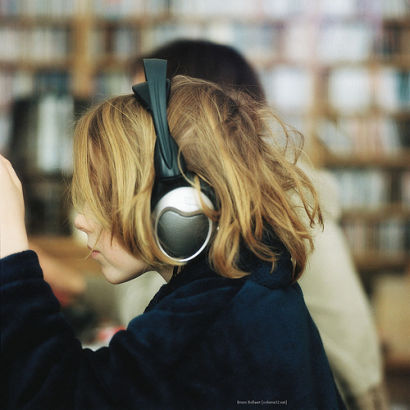
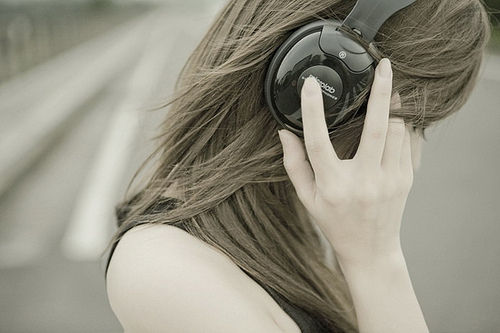

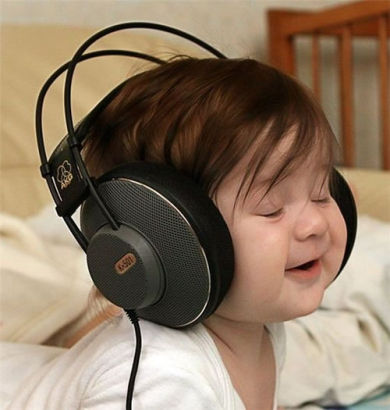
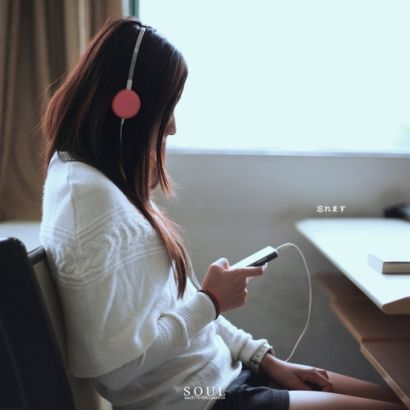
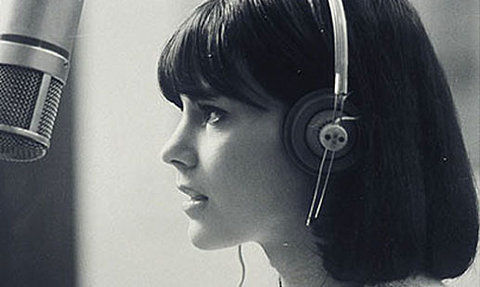
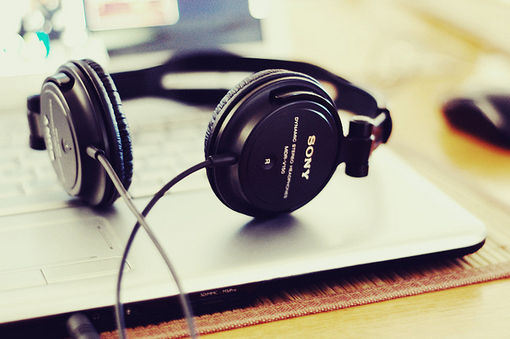













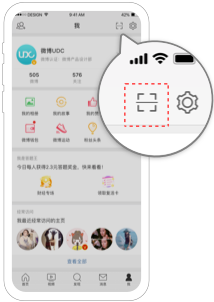
新浪警示:任何收费预测彩票会员等广告皆为诈骗,请勿上当!点击进入详情